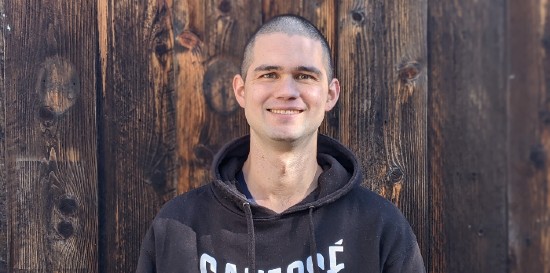Friday, January 8, 2021
Category: News
A Journey from Philosophy to Software Engineering

For many college graduates, their careers advance on an obvious path of their major. For Kevin Gin ’07, a philosophy major during his time at Messiah University, his career had a more unique path. Gin, a software engineer at Google, first fell in love with philosophy at Messiah University, but he redirected his career focus to computer programming by the age of 30. Gin exemplifies what it means to have courage to try new things with an open mind.
During his first year at Messiah, Gin immediately became hooked on philosophy. His first exposure to philosophy came through the course, “History of Philosophy.” Reflecting back on his original fascination with philosophy, Gin says, “I wanted to learn more about the origin of some of my deeply held beliefs so I could think critically about these beliefs and my worldview.” After reading Plato’s Phaedo, Gin took special interest in the history of philosophy and still finds it captivating to this day.
Gin says his professors exemplified what it meant to be a learner. The philosophical challenges his professors helped him conquer later impacted his ability to understand and grasp new skills like programming. The only “technical” course Gin took at Messiah was “Introduction to Logic” with David Schenk. “I was dreading taking the course going into it, but Schenk’s enthusiasm for logic was contagious, and soon as he introduced me to the beauty of logic,” he says, “I was hooked for life.” The decade following his time at Messiah, Gin became fixated on logic, which eventually made his transition into programming more natural.
After graduating from Messiah, Gin enrolled in graduate school in pursuit of becoming an academic philosopher. He received his master’s degree in philosophy at Northern Illinois University, and eventually his doctoral degree in philosophy at University of California, Riverside. While working towards his doctorate, Gin started coding on his computer, in an effort to—as he puts it— “procrastinate on my dissertation.” Gin wrote his first line of code at 30 years old. After learning the basics, he took his coding talents online to competitive programming sites. Over time, his performance caught the eye of a Google recruiter. Several years into computer programming, Gin decided to transition out of academia and enter the technical field.
Gin landed his first technical job at Amazon, where he helped program the well-known virtual assistant, Alexa. He worked on Alexa’s knowledge graph as a knowledge engineer. In this position, he wrote numerous rules that allow Alexa to understand natural language and answer questions. Speaking on his experience with Amazon, Gin says, “It was a fascinating job and a ton of fun.” Around the same time Gin started at Amazon, a Google recruiter reached out to him through an online programming site. After various conversations with the Google recruiter, Gin eventually moved to Google as a software engineer.
When asked about his interest in the position at Google, Gin says, “I joined Google for the opportunity to work alongside some of the best engineers in the world. It’s an amazing opportunity to learn and grow as an engineer and as a person. Free food is a pretty good perk as well.”
Currently, Gin resides on Google’s localization team where he builds infrastructure used to translate and localize content. In particular, Gin works on Computer-Assisted Translation (CAT) tools that improve the speed and quality of human translations. Referencing his favorite parts of the job, Gin says, “I love the scale at which Google operates. The translations that go through our system reach billions of users. It’s nice to know I played a part in making sure users around the world have the same great experience with Google products, regardless of the language they speak.”
Gin explained that a Christian education helped him separate his career from his identity. “Bryan Brunk, Messiah’s wrestling coach, talked about not taking yourself too seriously, since, when your identity is tied to the outcome of a wrestling match, for example, you start wrestling ‘not to lose’ rather than to win,” Gin said. “I’ve applied that advice to my career, and it has helped me take more risks and not be afraid to fail.”
With Gin’s broad set of knowledge, he offers several tips of advice for Messiah students. He encourages students to take a diverse set of courses in as many fields as possible. He also pushes students to gain exposure in fields of study that they might not immediately think they would enjoy, “That’s the best way to set yourself up to be a life-long learner, and to be adaptable in today’s job market,” says Gin.
Click here for more information about philosophy and computer and information science at Messiah University.